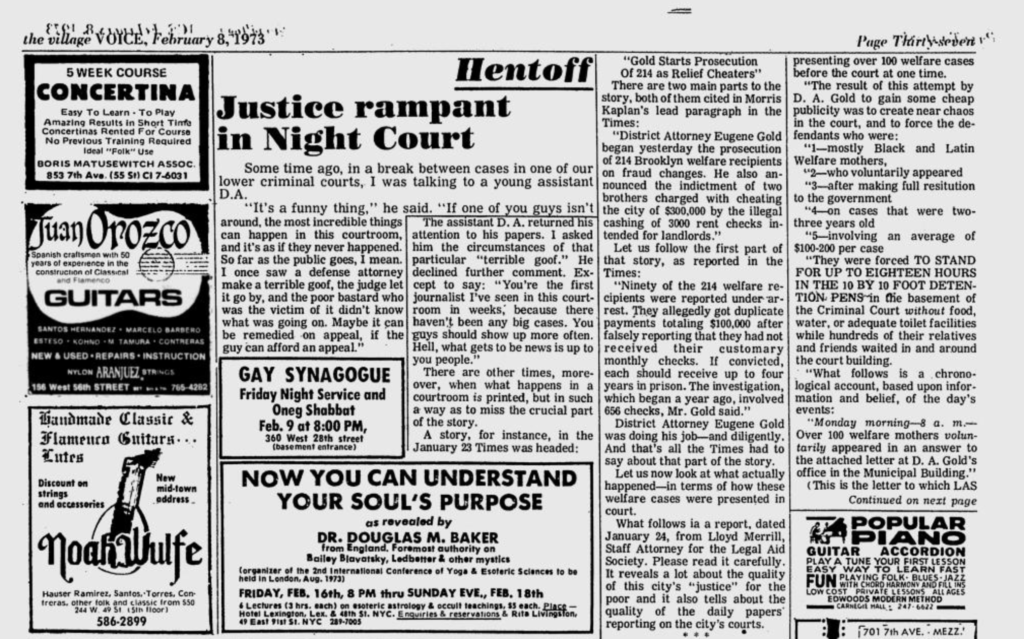In 1973, New York City’s first gay synagogue began to hold weekly Friday services, at a time when the gay liberation movement was new. The idea of a gay synagogue was unheard of for many people in the mainstream society. In 1975, it settled on a name: Congregation Beit Simchat Torah (CBST). Its membership grew rapidly and in 1976 CBST moved to a bigger location on Bethune Street, in West Village.
When David Spegal first came to CBST, he was a 19-year-old student at New York University. He and his first husband, Arthur Strickler, were both active members of CBST. The following is an excerpt from an interview with Spegal.

When did you first hear about the Congregation Beit Simchat Torah?
It was 1979, I was 19. I was a student at NYU and I joined the Gay People’s Union [The first gay student organization at NYU, started in 1976]. Someone from the union told me about a gay synagogue and I thought, “That’s interesting, I better go check it out.” You know, back then there weren’t that many gay groups or gay communities besides a couple bars. There weren’t many places where I can meet other gay people in a non-sexual way.
So I went there on a Friday night. I was still working at the time, so I went there straight from work, Mt. Sinai Hospital. I was walking up and down Bethune Street trying to find it. You know West Village at that time was not the trendy neighborhood that it is today. I was walking up and down and I couldn’t find it. So I walked up to a police officer and asked him if he knew where the Congregation Beit Simchat Torah was. He said yes and led my right to its front door.
I didn’t think about if asking the police could bring me or anyone into trouble. I guess I was just young and naïve. I just wanted to find this place.
Was the location discrete? What did you feel when you first arrived at the congregation?
It was discrete. I mean it had the Israeli and American flags and the name Congregation Beit Simchat Torah out but nothing openly gay. It had many lambda signs hanging at its entrance, it was the gay symbol of the time, so if you knew you would know. But it was discrete.
When I got there, I was excited. The place was brightly lit and everybody was friendly. Again, there weren’t many places where I got to meet other gay people. At the Gay People’s Union, they were all people my age. But here I got to meet gay people from all ages. I was hungry to meet people. People would dance, sometimes even on the table. It was a sweet time before the AIDS crisis hit. When the AIDs crisis came in the 80s, you know, it’s a different picture.
For a synagogue, it was different. First of all, it didn’t have a rabbi, it had a lay leadership, which means it didn’t have the usual hierarchy that you normally find at synagogues. It wasn’t based on money and everybody was equal. You would see millionaires cleaning the space. I really liked the egalitarian approach.
Did you decide to become a member right away?
I think I became a member in 1980, that was the year I began to become active. I met Arthur there and it changed my life. It really changed my life.
He told me why membership matters, because the synagogue needed money. He introduced me to the Social Committee. Usually after service people would hang around for a little bit and talk about other things in the synagogue. But I never stayed for those. Back then I was still living with my parents, so I had to rush home after service. I had to catch my bus back to the Bronx. One night, Arthur stopped me at the door and began telling me about the committee and asked me to come to their meetings.
He later told me that he noticed me because I was young and blond. I just don’t look Jewish. I was a sore thumb.
Are you still a member of the synagogue?
No, something happened when the rabbi came [Rabbi Sharon Kleinbaum became the spiritual leader of the synagogue in 1992].
As we grew bigger, the egalitarian model became harder and harder to maintain. Also the AIDs crisis increased people’s need for a rabbi. We formed a search committee and found a rabbi.
I don’t know if you have ever met Rabbi Sharon Kleinbaum in person or attended service with her. She is good with people. Very eloquent, very funny. She will be a great CEO. But if you get involved with her personally, which I have done multiple times, she became less great.
She had different ideas for the synagogue. We were Zionistic. We support the state of Israel. She is more liberal. She was also not happy with the fact that the synagogue was mainly male. She brought in a lot of women. She also moved the majority of the synagogue away from our Bethune Street location. I think because she wanted to attract a different group of people, a group that’s wealthier.
For me the breaking point was 9/11, the Yom Kippur service. It was a heavy moment for all of us and I asked her if she could send someone down here to host [lead] the service for us at Bethune. She said no. For me that was the moment it became clear that she no longer saw us as part of CBST.